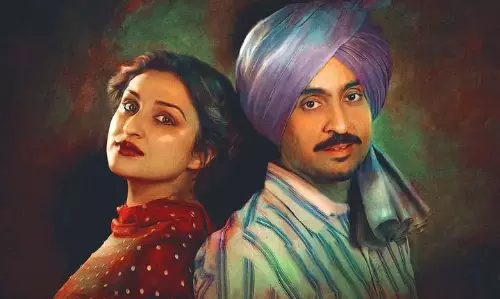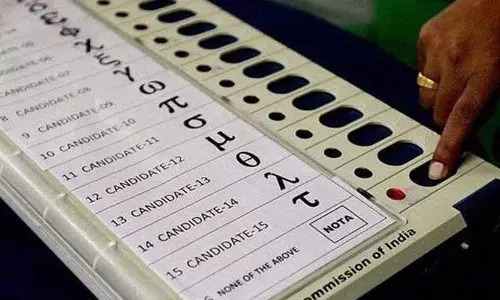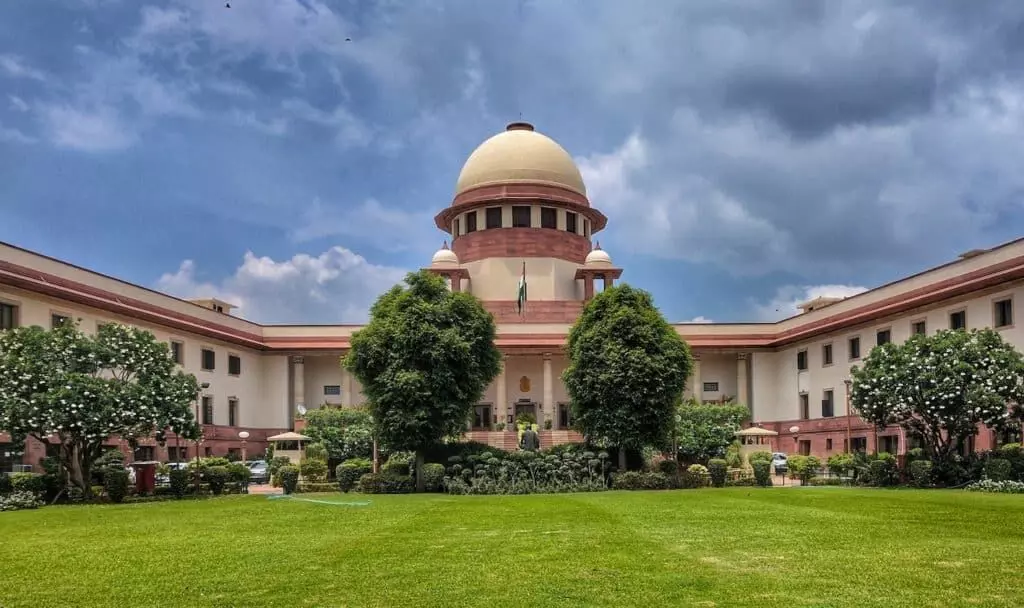
Judiciary bound by 'maryada': Supreme Court reprimands Centre
text_fieldsNew Delhi: In the Bhopal gas tragedy issue, the Supreme Court reprimanded the Centre for its plea seeking an additional Rs 7,844 crore from the successor firms of Union Carbide Factory (UCC), reported PTI.
The Centre intended to give compensation to the victims of the 1984 tragedy with the amount sought, but the court said that the government could not reopen a settlement arrived at with the firm after more than 30 years. The court is bound by 'maryada' of jurisdiction.
The court of a five-judge Constitution bench, headed by Justice Sanjay Kishan Kaul, observed that populism should not be the foundation of a judicial review and added that reopening a settled something at a later stage would not look good in a globalised world.
Justice Kaul said, "Courts are not averse to extending the envelope to exercise jurisdiction. But it all depends on the jurisdiction you are dealing with. If I am sitting in Article 226 jurisdiction, I would certainly not hesitate to mould the relief wherever required. In a suit, I will be more constrained, and here we are in curative. There is 'maryada' in the jurisdiction. We as judges are bound by 'Maryada' (limit) of jurisdiction."
The bench, also comprised Justices Sanjeev Khanna, Abhay S Oka, Vikram Nath and JK Maheshwari, told Attorney General R Venkataramani, "The court is not going to step into something which is not permissible and open the pandora box. There was a settlement which was arrived at between the parties, and the court approved it. Now in curative jurisdiction, we cannot reopen that settlement. Our decision in one case will have wide ramifications. You need to understand to what extent curative jurisdiction can be invoked."
"What is worrying, in this case, is that a lot of issues and questions have remained unanswered. By this curative petition, our endeavour is to elicit such answers. I think for all practical purposes, this court will proceed to assume the culmination of the welfare commissioner's proceedings to be correct and valid for having a second look at the whole settlement," he said. Venkataramani clarified he is not seeking to challenge the settlement already arrived at but wants more compensation for the victims of the tragedy. The bench said the government could not do this by invoking the curative jurisdiction of the court and, if it wanted to enhance the compensation, then it could avail the remedy of the suit. Justice Khanna said in the earlier settlement there were fundamental assumptions and there were calculations with respect to compensation. "If you unilaterally decide to change it (settlement) because someone feels that the compensation should be enhanced 26-30 years down the line, can that be a fundamental basis for changing it," he said, adding it doesn't take 26-30 years to redo the compensation figures.
Justice Khanna told the AG that the incident happened in 1984, and the settlement was arrived at in 1989, almost five years down the line. He wondered whether the court should conclude that the government and all its organisations were not aware of the number of people with minor injuries for whom ₹ 1,000 crores is being sought now. Venkataramani said even today, he had an interaction with ICMR scientists, and there are several unanswered questions about the medical evaluation of certain categories of ailments and disabilities.
Justice Khanna said, "There cannot be a scenario where you say that 50 years down the line, we have come across some more developments, so open it up. On that date, did you make a prudent decision?" "What is troubling us is that in a curative petition, you want some amount which you perceive, and you want to burden them (UCC) with that amount without actually challenging the earlier settlement," Justice Kaul said.
The AG said between 1992 and 2004, ₹ 1,549 crores were disbursed by the Reserve Bank of India, and around ₹ 1,517 crores were paid after 2004 as compensation. Justice Kaul said the Centre had submitted earlier that all the claimants had been paid; then why are ₹ 50 crores still lying with the RBI.
At the outset, senior advocate Harish Salve, appearing for the US-based UCC, said the settlement which was arrived at had no reopener clause in it.
"My instructions are to appear in proceedings arising out of the suit. I noticed in the paper handed over that there are claims for relief and rehabilitation, which I am not aware of. There are certain aspects which are not in the suit," he said.
The top court had earlier asked the Centre to clarify its stand on whether it wants to go ahead with its curative petition seeking additional funds.
The UCC, now owned by Dow Chemicals, gave a compensation of USD 470 million (Rs 715 crore at the time of settlement in 1989) after the toxic methyl isocyanate gas leak from the Union Carbide factory on the intervening night of December 2 and 3, 1984 killed over 3,000 people and affected 1.02 lakh more.
The survivors of the tragedy have been fighting for a long for adequate compensation and proper medical treatment for ailments caused by the toxic gas leak.
The Centre had filed the curative petition in the apex court in December 2010 for enhanced compensation.
On June 7, 2010, a Bhopal court sentenced seven executives of Union Carbide India Limited (UCIL) to two years' imprisonment.
The then UCC chairman Warren Anderson was the prime accused in the case but did not appear for the trial.
On February 1, 1992, the Bhopal CJM court declared him an absconder. The courts in Bhopal had issued non-bailable warrants against Anderson twice in 1992 and 2009, before his death in September 2014.
























